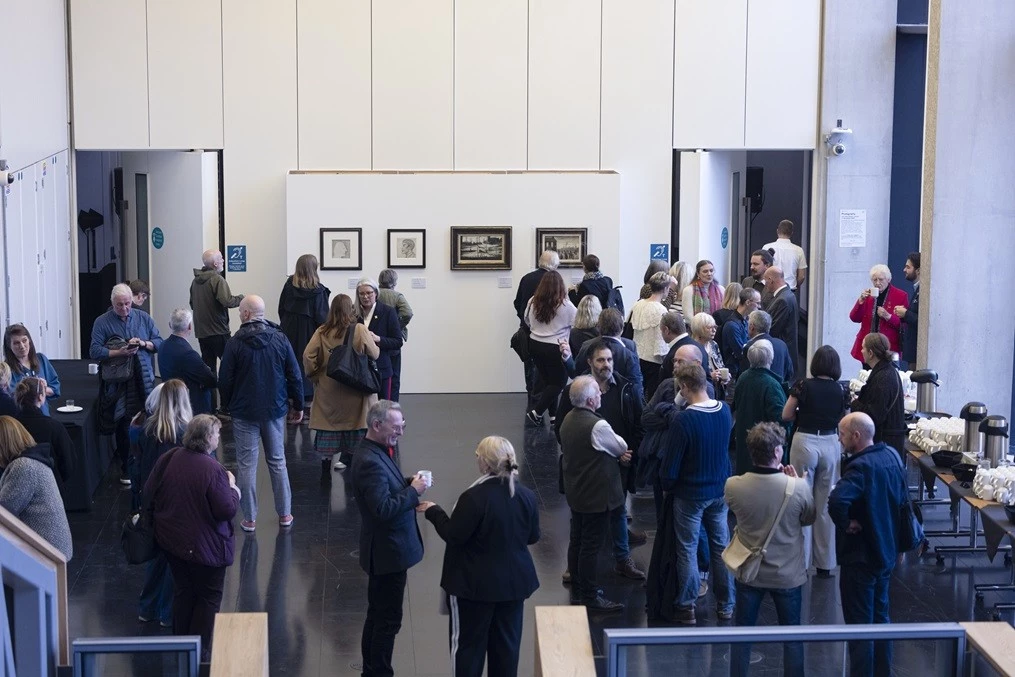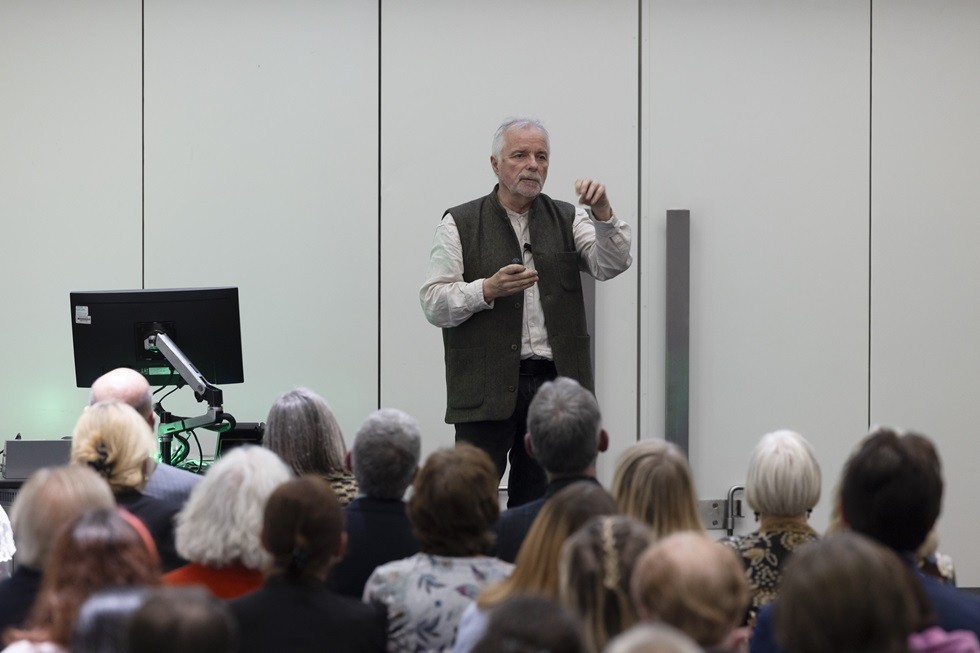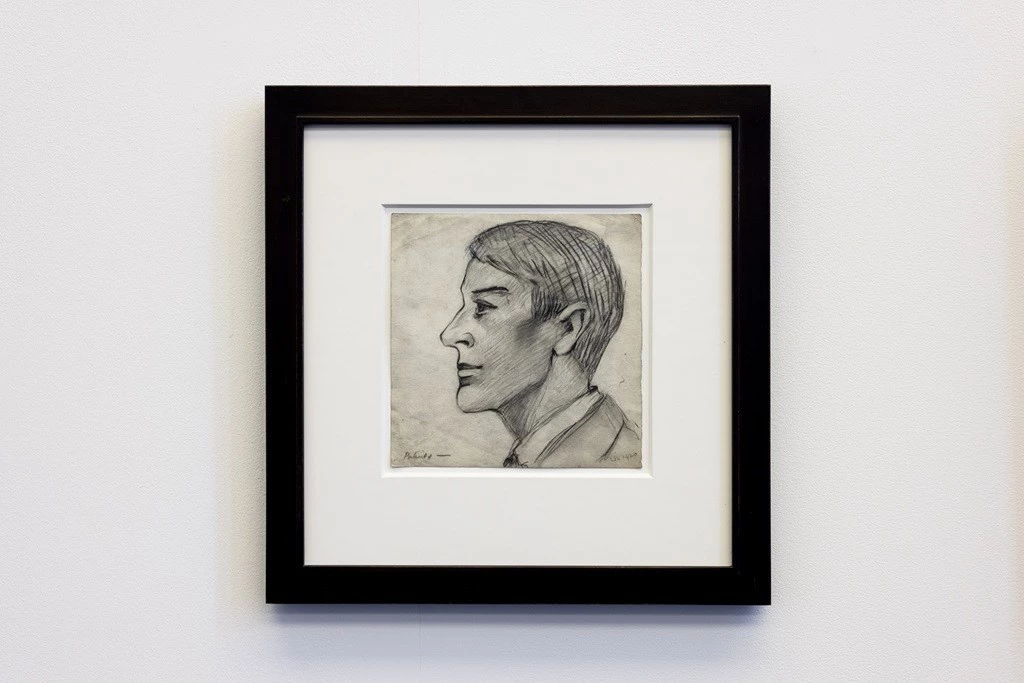Happy birthday, Lowry: event celebrates life and times of famous former Manchester Met student

Visitors to a talk on the life of iconic artist and Manchester Met alumnus LS Lowry were treated to a surprise unveiling of four original Lowry works, lent especially for the occasion.
On what would have been the painter and former Manchester Municipal School of Art student’s 137th birthday, two male portraits and two urban landscape paintings were put on temporary exclusive display for visitors to Manchester Met’s newly named Lowry Building.
The event to officially mark the new building name saw renowned Lowry expert Michael Howard urging the audience to view Lowry’s legacy as ‘more than just matchstick men’.
Referring to Lowry’s famous stick-like figures depicted in urban landscapes, Howard made a case for Lowry as a visionary artist whose work delves deeply into the human condition, reflecting a keen awareness of identity and consciousness.
To prove the point, four original Lowry works were brought out for viewing including pencil sketches Head of a Man and Portrait of a Man, both produced in 1920 and lent by Crane Kalman Gallery, as well as oil paintings Derelict Barges (1948) and After Closing Time (1938) lent by private owner Andrew Calthorpe.
Former Manchester Met history of art lecturer and world-renowned Lowry expert Michael Howard added context to the pieces, telling how the famous artist juggled work and studies while attending Manchester Municipal School of Art, now the University’s Manchester School of Art, from 1905 to 1915.
Multitasking paid employment for a property company alongside a wide range of evening art classes, Lowry studied under the tutelage of renowned French impressionist Adolphe Valette – a period that would prove key to the success of his future career.
Professor Martyn Evans, Pro-Vice-Chancellor and Director of Manchester School of Art, said: “We were honoured to welcome our friend and former lecturer, Michael Howard, who is such a distinguished expert on LS Lowry.
“This celebration event marked several notable occasions – Lowry’s birthday, the University’s 200th anniversary, and the official naming of our Lowry Building, which honours one of our most celebrated former students.
“It was wonderful to see the reaction of visitors to Michael’s fascinating talk when the artworks were revealed. Manchester Met has a long history of creative excellence and as we celebrate our 200th anniversary it is fitting that Lowry’s name and legacy is being recognised in this way. We are grateful to Crane Kalman Gallery and to Andrew Calthorpe for lending us their artworks.”
In attendance at the lecture were representatives of the Estate of LS Lowry, including the Estate’s Director, Richard Grossick. When the naming of the building was announced in May, he said: “It is almost 50 years since the passing of LS Lowry in February 1976 and the estate is delighted that he is being celebrated in this way at this time. A fitting tribute to a man whose life and work is woven into the arts and cultural fabric of Greater Manchester.
“We hope that his work continues to inspire future generations in a building dedicated to his memory and central to the future of arts and cultural creativity, regionally, nationally and internationally.”
Earlier this year, historic University records were shared which showed that Lowry balanced his evening studies alongside paid work as a rent collector. To coincide with the art and design degree shows in the summer, Manchester Met’s historic Grosvenor West Building – in which Lowry studied - re-opened following a two-year refurbishment.
The official naming lecture of the Lowry Building, ‘Birth of an Artist: LS Lowry and Manchester School of Art’ was delivered by artist, author and renowned Lowry expert Michael Howard who taught history of art for many years at Manchester Met before becoming an independent scholar, writer, painter, and curator.
He has lectured at universities and galleries around the word and is the author of many books, including the ground-breaking study LS Lowry: A Visionary Artist, in 2000.







